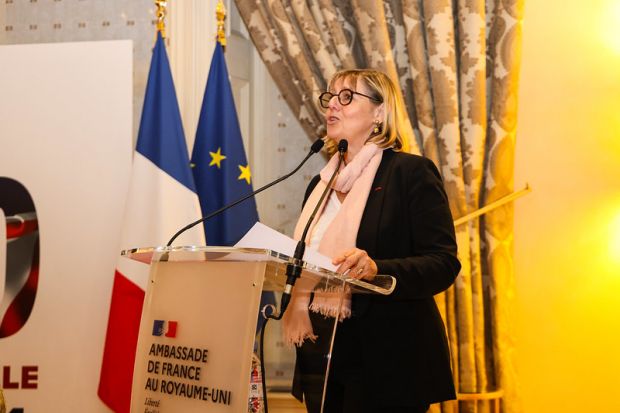Now-abandoned measures that would have placed harsh restrictions on international students were “an episode, but not the reality of France”, higher education minister Sylvie Retailleau has said.
Approved by the French parliament in December, the hard-line, widely criticised immigration law initially included a requirement for international students to pay “return deposits” to cover potential “removal costs” should they outstay their visas.
International students would also have been required to prove the “real and serious nature of their studies” every year, while universities would have been obliged to charge higher registration fees for students from outside the European Union.
The measures were rejected by France’s Constitutional Council in January, alongside other contested aspects including limits on family reunification and the criminalisation of residing in France without a visa.
Professor Retailleau submitted her resignation over the immigration bill, but President Emmanual Macron rejected her request. Speaking to Times Higher Education, she said it was “very important to keep open access and attractivity for international students, for the French government and for all the universities”.
The modified law, she said, “is consistent with the French government positions on higher education and research. It’s a good thing to keep this image of a very open science, for students and for researchers.”
In January, the umbrella body France Universités said in a statement that the “discriminatory” scrapped measures had “already weakened the image of France and its influence”, calling for trust to be “rebuilt”.
But Professor Retailleau dismissed suggestions that France’s reputation as a destination for international students had been damaged. “I’m sure our partners know we want to welcome their students,” she said.
“The government still has the objective of welcoming 500,000 international students [by] the end of 2027, and we are currently at 400,000,” she said. “We want to be a country where we can share knowledge and talents in order to have a lot of partnership between countries.”
Professor Retailleau visited London in order to endorse, alongside UK science secretary Michelle Donelan, “a joint declaration to strengthen UK-French research ties even further”, according to a UK government press release.
The ministers’ meeting, the first since the UK’s return to the European Union’s Horizon programme, saw them commit £800,000 to existing joint research programmes, while announcing a new partnership between the UK’s AI Safety Institute and Inria, France’s National Institute for Research in Digital Science and Technology.




